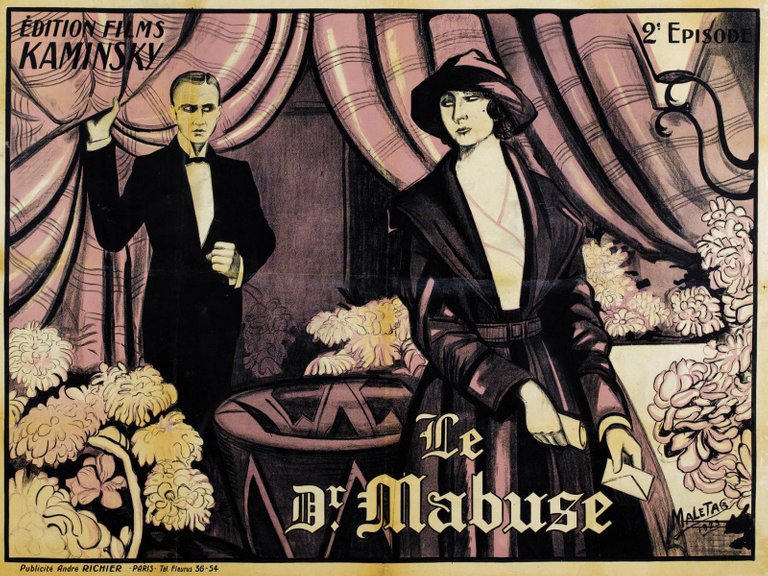In 1963 Jean-Luc Godard, the most prominent auteur of French Nouvelle Vague movement, directed "Contempt" (org. "Le Mépris"). Although the movie became famous most importantly because of the political controvery surrounding Brigitte Bardot bottom, right now it is considered one of the most important films of the 60's and the whole New Wave.
Godard was a prominent supporter of the auteur theory, sharing the view that a movie director should be considered as the main creator of the film. Currently this theory is rather unpopular, but it helped in establishing the key role of the film director, which was considered rather not that important before that. That's why one of the main characters in "Contempt" is a real life director, Fritz Lang. In 1963 he was an old, forgotten persona of German pre-war cinema, but today he is considered to be a masterful director that changed the cinematography. For Godard Lang was a personification of an auteur and that's why he praised his artistic ways in "Contempt". Why is Lang that siginifant for the film history?

1920s were the dawn of cinema. This is the time when all major movie genres really started and the popularity of cinema rapidly raised. Creators started to actually understand the means of cinematic expression, which led to major improvements in the movie's form. Lang was one of the precursor's of the genre cinema. In 1921 he directed "Der müde Tod", one of the most important films of German expressionism movement. After that he revolutionized the movie genres with 1922's "Dr. Mabuse, der Spieler", which is an almost 5 hours long flick that was a cornerstone for modern gangster/heist/mafia movies, as well as with 1924's "Die Nibelungen" duology, first major fantasy movies.
But Lang's most remembered and best (although not for film critics, but the general public) movie was released in 1927. It's "Metropolis" and you have probably at least heard of it. This science fiction dystopia was the most expensive silent movie ever created and even though it flopped in the box office, this film demented Lang's status as the genius of cinema. Whats quite interesting, "Metropolis" was forgotten and rediscovered after the war, but it became really popular due to Queen's song "Radio Ga Ga", which movie video used the parts of the movie. Since that "Metropolis" is still being watched, although I do not recommend it for casual viewers, since it's quite long and slow-paced.
Later on he kept on directing more genre movies and the most important one (and, due to most film critics, his best) was 1931's "M". It's a precursor for a crime movie and, arguably, best crime movie ever made. Not only Lang made a fascinating, ambiguous film, but he also masterfully developed it's main character, a serial killer who preys on little children. The political message of the movie was quite disturbing, since the police is shown as useless against the criminal underground, which makes it's own cangaroo court against the killer. What happens next? Well, you can watch it by yourself - and it's free!
Unfortunately in early 30's NSDAP came to power and Lang was forced to emigrate to Paris and then to the US. He held strong anti-Nazi views and did not accept Joseph Goebbels proposal. Nazi Party wanted Lang to became the head of Nazi propaganda cinema. Of course he refused, although his nationality and artistic way of creating movies killed his career for good. After emigration he directed quite a few mediocre movies, but he has never made anything groundbreaking again.
Personally I really like Lang's movies. Well, most of them. I hated "Metropolis" and loved "M" and "Die Nibelungen", but his best flick is definately first "Dr Mabuse, der Spieler" (later on he made two sequels, which unfortunately weren't really good). This is probably the best thriller/gangster movie I have ever seen... And believe me, I have seen a lot of them.
You can watch "Dr Mabuse" for free on Youtube:
Actually most of Lang's movies are in the public domain and hence available for free. If you have time and mood for good, old silent cinema - don't hesitate. Just watch it.